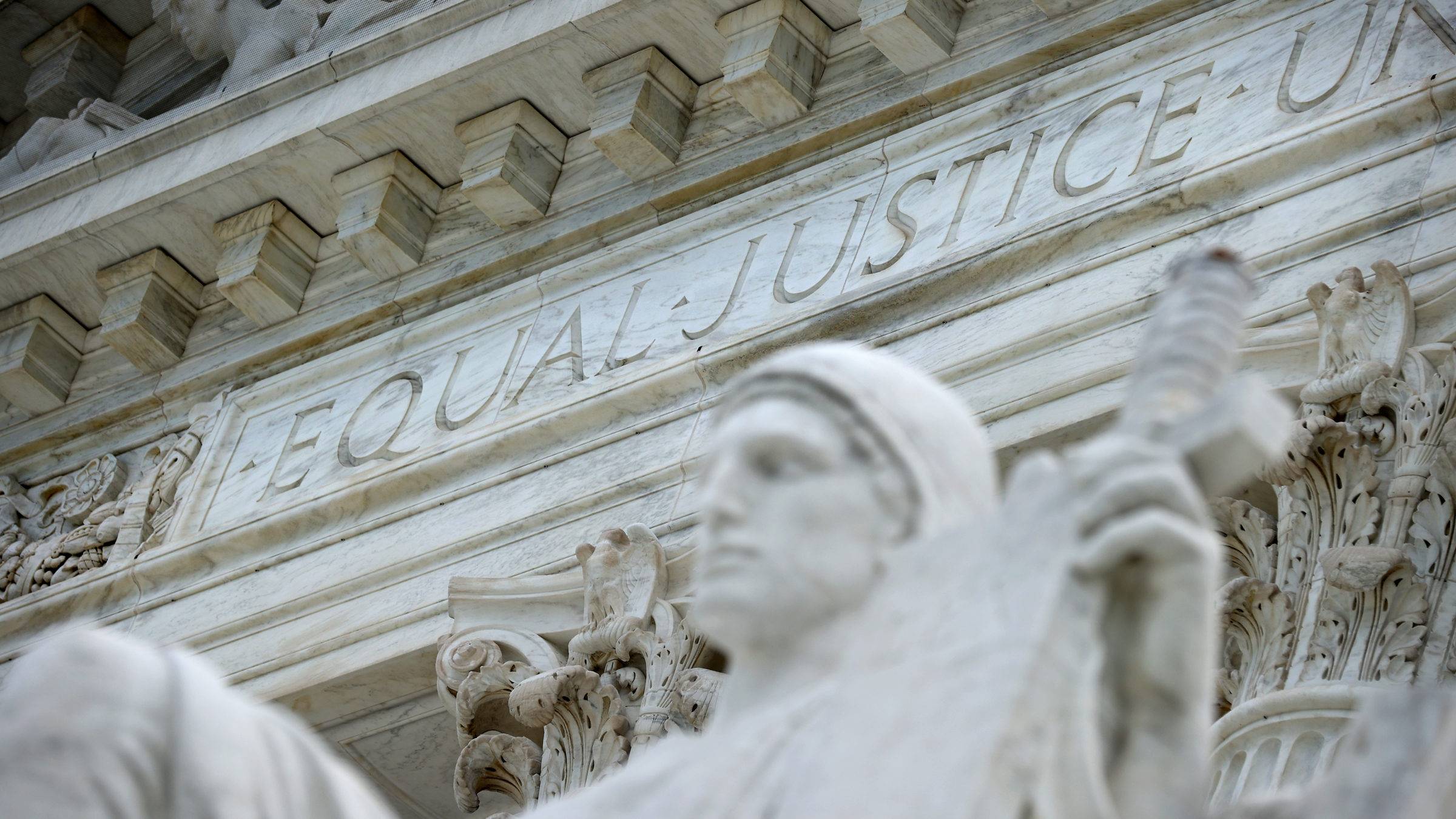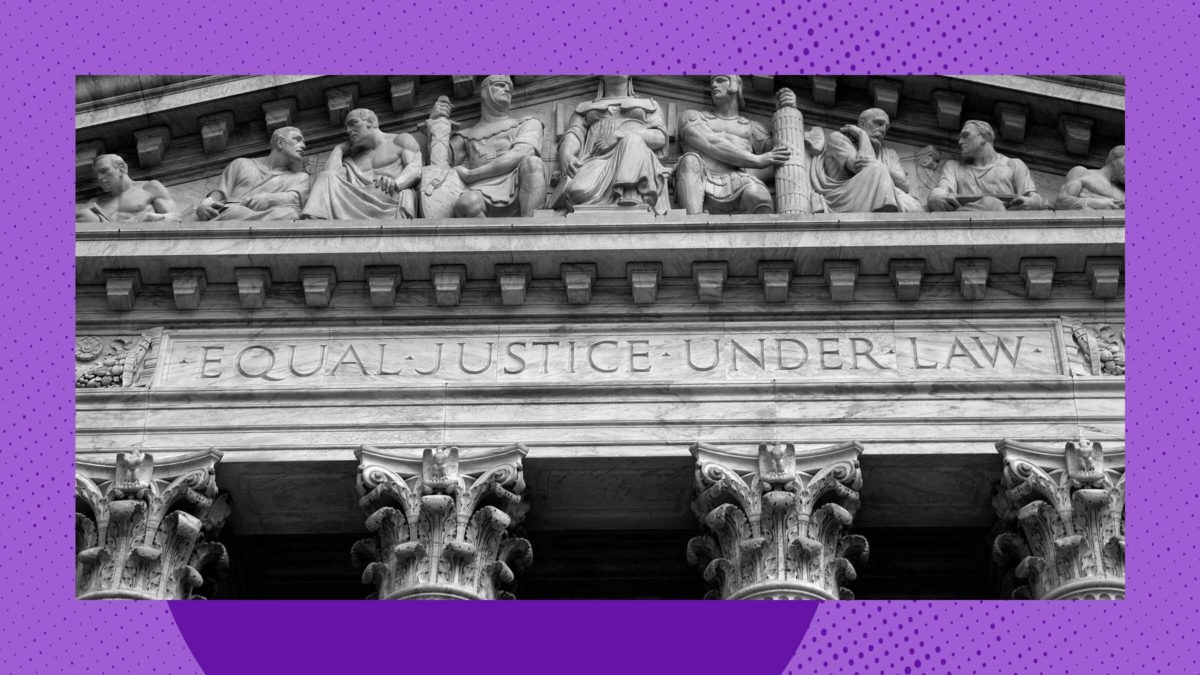Will I still be able to be an attorney once this is public? I texted a few close friends, as they reviewed the statement for the congressional record that I was preparing to submit. It had been twenty months since my post-law school clerkship abruptly ended four months early. It had been six months since I filed a formal complaint against my Senate-confirmed former supervisor, then a judge in D.C. Superior Court. And it was just a few weeks before I’d share my story publicly with the House Judiciary Committee, urging them to pass legislation that would protect judicial branch employees like me from discrimination, harassment, and retaliation.
The harassment began just weeks after I started clerking. At least weekly, without warning, the judge would call me into his office and start berating me, telling me I was “bossy,” “aggressive,” and “nasty,” and that I had “personality issues.” He occasionally threw me out of the courtroom, explaining that he did so to “punish” me. He told me that I made him “uncomfortable,” and that he “just felt more comfortable” with my male co-clerk. Sometimes, the judge would just tell me that I was a “disappointment.”
The day I found out that I passed the bar exam, he called me into his chambers and told me, “You’re bossy! And I know bossy because my wife is bossy!” I cannot remember a day during my clerkship when I did not cry in the bathroom at work or cry myself to sleep.
When the office transitioned to remote work in March 2020 during the COVID-19 pandemic, the judge ignored me for six weeks. Calls and emails went unanswered; days later, I’d receive a text from my male co-clerk, who informed me that the judge had told him to tell me that the orders I had sent were approved. Then, one afternoon in late April, the judge told me that he was ending my clerkship four months early. Again, he said that I made him “uncomfortable” and “lacked respect,” but that he “didn’t want to go into it.” The court’s human resources office told me there was nothing they could do; HR doesn’t regulate judges, they explained, especially given that “judges and law clerks have a unique relationship.”
However, what differentiates my story from previously-told stories about other notoriously misbehaving judges like Alex Kozinski and Stephen Reinhardt began more than a year later, on July 16, 2021. I was two weeks into my training period to join the U.S. Attorney’s Office for the District of Columbia as a prosecutor. My position was contingent upon passing a background investigation, but I had passed five previous background investigations without issue. This one dragged on a bit longer than I expected, but I was told that this was due to a backlog and to COVID-related delays.
For the second time, my career changed with a supervisor’s phone call. The judge had made negative statements about me during my background investigation, I learned. As a result, I would not be able to obtain a security clearance, and my job offer was being revoked.
I was devastated. I choked back tears during another call with another human resources officer. I told her what happened during my clerkship, and that the judge had agreed to provide a “neutral” reference if contacted. But the damage had been done. The decision was final.
Several days later, I was invited to interview for a different position with the same federal prosecutor’s office, based on an application I had submitted several months earlier. That offer was revoked as well, based on the judge’s same negative reference. I was only two years out of law school, and the judge seemed to have limitless power to ruin my reputation and destroy my career.

Federal appeals court judge Alex Kozinski resigned in 2017 after more than a dozen women came forward with accusations of sexual harassment (Photo by Justin Sullivan/Getty Images)
I filed a judicial misconduct complaint with the D.C. Commission on Judicial Disabilities and Tenure (CJDT), the regulatory body for D.C. judges. The CJDT, which is composed of judges, attorneys who frequently interact with judges, and several non-attorneys, is empowered to investigate complaints against judges and to publicly reprimand them. In the most serious cases—because D.C. judges do not have life tenure—the CJDT can remove a judge from office. Based on my conversations with other law clerks, attorneys, and judges, I suspected I was not the first victim of the judge’s misconduct. But I understood removal was a long shot, considering that the judge was just five years into his fifteen-year, Senate-confirmed term of appointment. It was going to be my word against his.
I quickly learned that the CJDT protects misbehaving judges, not mistreated law clerks. I should not have been surprised, since it was the judge’s friends and colleagues who were deciding whether to discipline him. I was told once again that I had a “personality issue,” and that I must have done something wrong—after all, the judge had hired me in the first place. The CJDT also lacked the power to help me; they could not award me damages, for example, or help me get my job at the U.S. Attorney’s Office back. In fact, the CJDT made clear to me that the judge’s negative reference was outside the scope of their investigation. As far as I know, they didn’t even ask him about it.
To my surprise, however, in 2021, the CJDT “involuntarily retired” the judge from the bench—the first time it had done so to a sitting judge. From the public order announcing the decision, I learned that the former judge had already agreed to take administrative leave, pending an investigation of various misconduct allegations, when he had filed the negative reference about me. On his way out the door, he had taken time out of his life to try to destroy my career. I felt part relief that he could no longer mistreat law clerks like myself; part satisfaction that he had been disciplined for some of his misconduct; and part frustration that the CJDT seemed not to understand the full scope of it.
The harm the former judge inflicted on me, both personally and professionally, continues to this day. Yet under existing law, there are no effective safeguards to prevent this type of mistreatment. A judge’s reference can make or break a law clerk’s career. Their word is accepted unquestioningly by legal employers, who have a vested interest in remaining in the good graces of judges before whom they may appear in the future. Legal culture deifies the judiciary, because attorneys are taught that judges can do no wrong. The upshot is that life-tenured judges, by and large, are accountable to no one.
As previous congressional testimony, pending legal actions, and law school “whisper networks” have revealed, harassment in the judiciary is pervasive. Yet the existing complaint process captures only a small fraction of it, since law clerks rarely file complaints against judges. Even when they do, judiciary leadership often dismisses them, giving law clerks little faith that their concerns will be taken seriously. Between September 2020 and 2021, of the nearly 1300 complaints filed, only 11 were filed by judicial employees; only 4 were referred to a special committee; and none resulted in corrective action. At a 2018 Senate Judiciary Committee hearing, a federal court system official proudly proclaimed that in some years, including 2016, clerks filed zero complaints against judges. This data point does not suggest that judges are blameless; rather, it suggests that the reporting systems are broken.
Right now, clerks’ options are limited. The federal judiciary is excluded from Title VII, the landmark antidiscrimination law that protects employees against workplace discrimination, harassment, and retaliation based on race, color, religion, sex (including both gender and gender identity), and national origin. A clerk for a federal judge can file a complaint in the circuit where they work. But it is reviewed by the Chief Judge of the circuit (the misbehaving judge’s boss) and potentially a special committee of judges within the circuit (the misbehaving judge’s colleagues). Law clerks are understandably skeptical about impartiality and confidentiality during the process. Additionally, many clerks are dissuaded from filing complaints because it will damage their reputations, especially if they hope to practice in the circuit where the judge presides. After I filed a complaint, one attorney in whom I confided told me it would have been “the right professional decision” not to say anything.
On the rare occasions when complaints do result in formal investigations, the likeliest outcome for the judge is a public reprimand, and even these are rare. A process called Employee Dispute Resolution (EDR) is supposed to provide clerks with an alternative to filing formal complaints, but it suffers from many of the same structural weaknesses. The “best” outcome of EDR is likely just reassignment to a different judge for the remainder of the clerkship.

(Photo by Chip Somodevilla/Getty Images)
Last summer, a bipartisan coalition of lawmakers proposed a bill known as the Judiciary Accountability Act of 2021 to address some of these problems. In addition to allowing judiciary employees to sue under Title VII, the JAA would establish a Special Counsel to investigate some misconduct complaints; expand the definition of “judicial misconduct” to include discrimination and retaliation; and clarify that if a judge retires, resigns, or dies, the investigation into his misconduct will not cease. The JAA would also create a confidential reporting system and a standardized EDR plan, and force the judiciary to publish data on workplace culture, judicial complaints, and (the lack of) diversity in clerkship hiring—notoriously under-scrutinized areas.
The JAA is a strong piece of legislation, but it does not go far enough. For example, judicial complaints would be filed with the Judicial Conference, the national policy-making body for the federal courts—in other words, within the chain of command. Complaints would still be reviewed by the Chief Judge of the circuit where the judge and law clerk work. Only later in the process, if the Chief Judge convenes a special committee of judges to investigate, would judges from other circuits and members of the Commission on Judicial Integrity (CJI)—a proposed body consisting of employees, judges, and experts in civil rights and judicial misconduct investigations—get involved. Considering that hardly any complaints make it to the special committee review stage in the first place, this would do little to alter the insular nature of the existing process.
There is no reason why judicial branch employees should have less access to the justice system in which they work, and no reason why judges who enforce federal civil rights laws should not themselves be subject to them.
A radically under-addressed problem requires more radical interventions. Congress should take formal complaints and EDR out of the judiciary’s chain of command and turn them over to neutral third parties—employees within the circuit’s Equal Employment Opportunity (EEO) Office. The JAA should also include a venue-shifting provision. Judiciary employees should not have to sue their harassers in a jurisdiction where one of the judge’s colleagues would preside over the case. Enabling mistreated clerks to sue in a neighboring jurisdiction would lessen the fears of reputational harm, public disparagement, and retaliation that make it so difficult for clerks to speak out.
Finally, Congress needs to ensure that judges who harass clerks face meaningful consequences. It could start by investing the resources to impeach more misbehaving judges. Only 15 judges have ever been impeached by the House; of those, the Senate convicted only eight. Impeachment is the only method of removing life-tenured federal judges from the bench. When the circumstances call for it, lawmakers can’t be gun-shy about exercising this power just because they’ve previously done so rarely. Current law also allows judges to collect their pension if they “retire” rather than “resign.” This effectively allows misbehaving judges to keep collecting a paycheck if they see the writing on the wall and hand in their paperwork early enough. Congress should eliminate this distinction and revoke the pension of any judge who steps down following misconduct allegations.
The Judicial Conference of the United States opposes the JAA, claiming that the judiciary is an “exemplary workplace” and touting “multiple avenues to report workplace conduct concerns” as evidence that it has solved the problem of workplace harassment. In Chief Justice John Roberts’s Year-End Report on the Federal Judiciary, he claimed that courts are in the best position to regulate themselves, and that “inappropriate workplace conduct is not pervasive within the Judiciary.” Yet in January, The Washington Post reported that the Administrative Office for the United States Courts suddenly removed from an internal survey a question about judicial misconduct after 34 of about 40 initial respondents, who are primarily law clerks and judicial assistants, reported having witnessed misconduct.
Similar to other insular organizations like the military and police unions, the judiciary has proven itself unable to self-police. There is no reason why judicial branch employees should have less access to the justice system in which they work, and no reason why judges who enforce federal civil rights laws should not themselves be subject to them.
Congress should pass the JAA this year so that fewer law clerks are mistreated the way I was, and those who are can hold their harassers accountable. I will never get an apology from the former judge who harassed me during my clerkship, and who set out to tank my career one year later. But at this point, I don’t need an apology for the mistreatment I already endured. What I want is for future clerks not to have to endure it at all.

